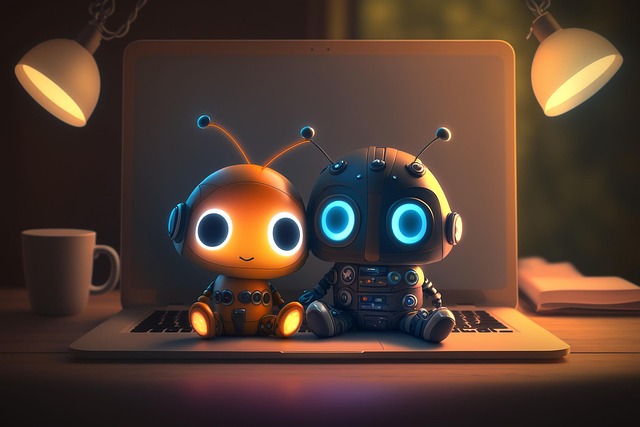# The Role of AI Technology in Revolutionizing Industries and Enhancing Human Interaction Today
The advent of artificial intelligence (AI) technology has marked a transformative era across various sectors, fundamentally altering how industries operate and how humans interact within those frameworks. From healthcare to finance, and even the creative arts, AI is not merely a tool but a catalyst for innovation, efficiency, and enhanced human experience.
## Transforming Industries Through Automation and Data Analysis
One of the most significant impacts of AI technology is its ability to automate processes and analyze vast amounts of data with unprecedented speed and accuracy. In manufacturing, for instance, AI-driven robots are streamlining production lines, reducing human error, and increasing output. These systems can adapt to changing conditions and learn from their environment, which allows for a level of flexibility previously unattainable in traditional manufacturing setups.
In addition to automation, data analysis has become a powerful ally for businesses looking to optimize their operations. AI algorithms can sift through massive datasets to identify patterns and trends that would be impossible for human analysts to discern. In retail, companies are utilizing AI to predict consumer behavior, enabling them to personalize marketing efforts and inventory management effectively. This not only enhances customer satisfaction but also drives revenue growth, showcasing the dual benefits of efficiency and enhanced consumer engagement.
Moreover, sectors like finance are leveraging AI for risk assessment and fraud detection. Machine learning models can analyze transaction patterns in real-time, flagging anomalies that may indicate fraudulent activities. This proactive approach not only protects consumers but also strengthens the integrity of financial institutions, demonstrating how AI can serve as a guardian of trust in critical industries.
## Enhancing Human Interaction Through Personalization and Support
Human interaction is being redefined through AI technology, particularly in customer service and personal assistance. Chatbots and virtual assistants are now commonplace, providing immediate support and information to users. These AI-driven interfaces can handle a multitude of inquiries simultaneously, ensuring that customers receive timely responses regardless of the volume of requests.
Personalization is another area where AI shines. By analyzing user data, AI systems can tailor recommendations and communications to individual preferences. Streaming services like Netflix and music platforms like Spotify utilize AI algorithms to suggest content that aligns with users’ tastes, creating a more engaging and satisfying experience. This level of personalization not only enhances user satisfaction but fosters a deeper emotional connection between consumers and brands.
Furthermore, AI is opening new avenues for human interaction in education. Adaptive learning platforms utilize AI to assess students’ strengths and weaknesses, providing customized learning experiences that cater to individual needs. This approach not only improves educational outcomes but also empowers students to take charge of their learning journeys, transforming the traditional educational landscape into a more interactive and personalized experience.
## Ethical Considerations and the Future of AI in Human Interaction
As AI technology continues to evolve, ethical considerations surrounding its use are becoming increasingly prominent. Issues such as data privacy, algorithmic bias, and the potential for job displacement are at the forefront of discussions among policymakers, technologists, and ethicists. The challenge lies in harnessing the benefits of AI while ensuring that its deployment does not compromise individual rights or societal values.
Addressing these ethical concerns requires a collaborative approach involving various stakeholders. Policymakers must establish regulations that promote transparency and accountability in AI systems, ensuring that they operate fairly and without bias. Technologists, on the other hand, have a responsibility to design algorithms that prioritize ethical considerations, integrating fairness and inclusivity into their frameworks.
Looking ahead, the future of AI technology promises even more profound changes in how industries operate and how humans interact. The integration of AI with other emerging technologies, such as the Internet of Things (IoT) and blockchain, will create interconnected ecosystems that enhance efficiency and security. As these technologies converge, the potential for innovation will expand, leading to new business models and opportunities that we have yet to imagine.
In conclusion, AI technology is revolutionizing industries and enhancing human interaction in ways that were once thought to be the realm of science fiction. The automation of processes and the ability to analyze data are reshaping industries, while personalized experiences and improved customer support are redefining human interaction. However, as we embrace these advancements, it is crucial to remain vigilant about the ethical implications of AI. By fostering a responsible approach to AI development and deployment, we can ensure that this powerful technology serves as a force for good, benefiting both industries and the individuals within them.











